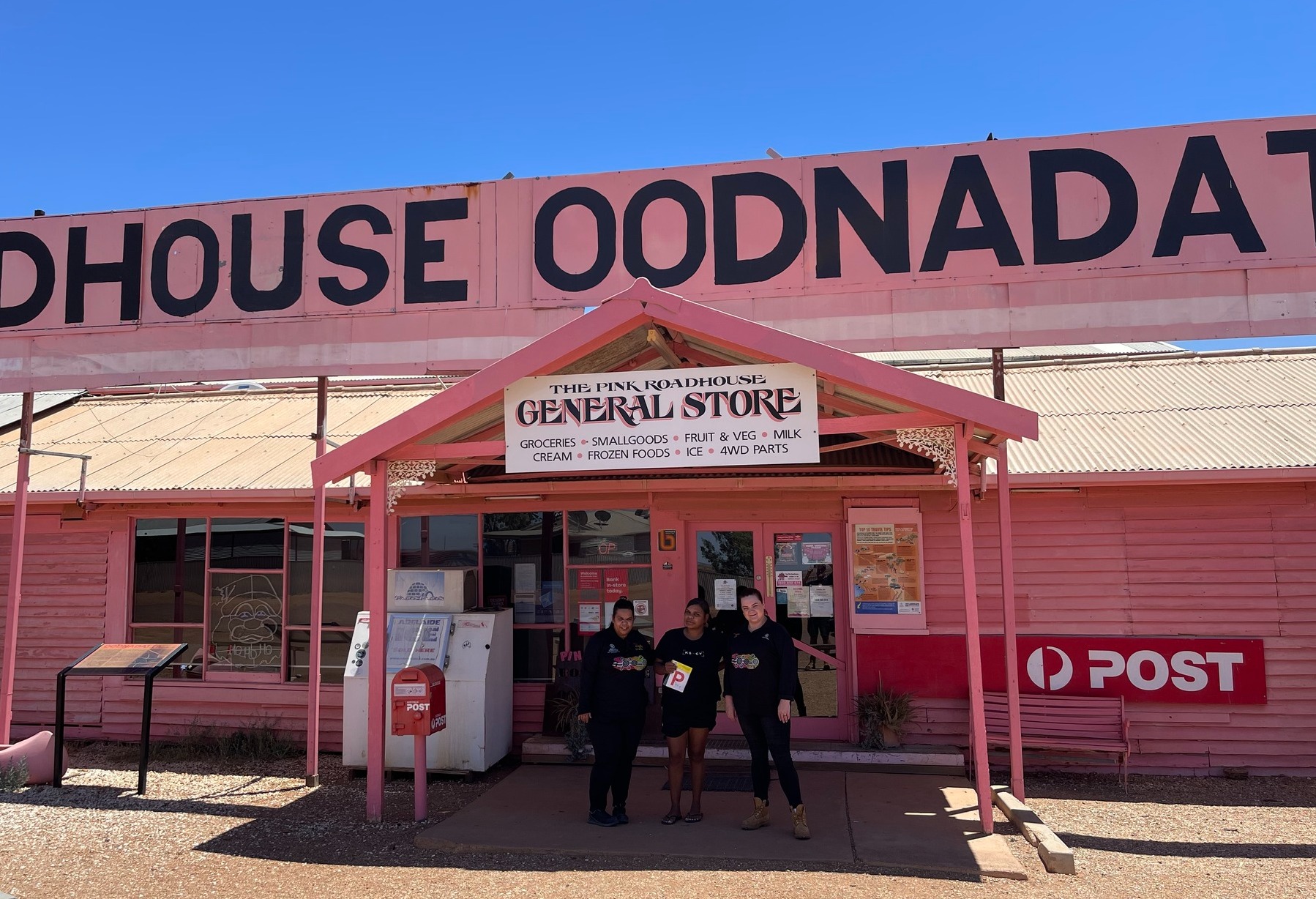Reconciliation in action: Driving opportunities in remote communities
Monday 27 May 2024
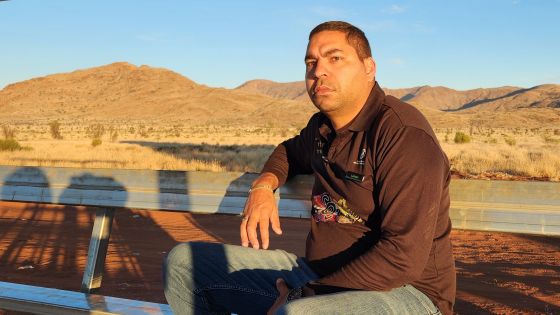
On Bardi Country, about 220km from Broome in the Kimberley, lies the small Aboriginal community of Ardyaloon (One Arm Point).
For travellers, it’s a remote stop at the northernmost tip of the Dampier Peninsula. For Larsen Clements, it’s home.
The mechanic-turned-Senior Program Support Officer draws on his upbringing among a population of only a few hundred people to help all he meets through On The Right Track.
The program aims to improve road safety and driver licensing outcomes for Aboriginal people living in remote communities, where it can be difficult to get a licence.
“Out there is a different world,’’ Larsen says.
“A lot of people say it’s a choice to live so remote, but if you’ve grown up in the bush, it’s home - it’s not a choice. It’s a feeling of where you belong.
“For myself, travelling and living remote, I’ve seen the struggle; knowing it from when I was young to now when I’m older, I’m able to help and articulate a way around that to get people outcomes.’’
Inspired by his late grandfather John, who was an aircraft mechanic with the Royal Australian Air Force, Larsen pursued an automotive apprenticeship in his late teens. He plied his trade around Australia for more than a decade before joining the Department for Infrastructure and Transport.
“Growing up in a small community, you make your own fun, so I’d go hang out at the workshop most days after school,’’ Larsen says. “I started when I was young, working on mowers and different machinery, and it progressed from there.’’
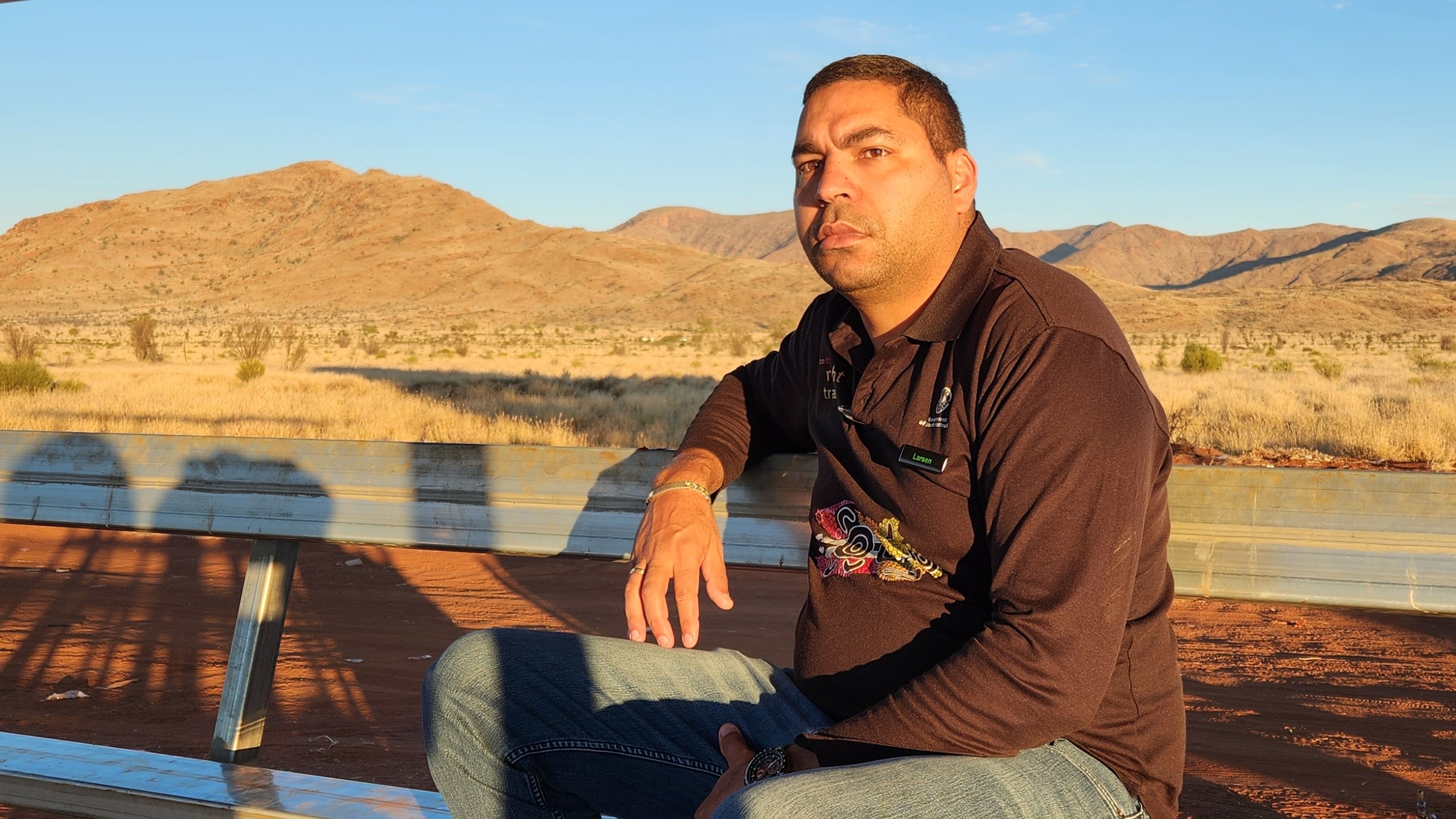
Since it began in 2015, On The Right Track has assisted more than 3112 Aboriginal and non-Aboriginal people living in regional and remote regions, and issued more than 1167 learner permits, over 425 provisional licences and 12 heavy vehicle licences.
Countless other people have been helped along the way.
“I’ve always got my tools on me,’’ Larsen says. “Lights, globes or fuses pop, so I’ll have a look at those for people. There are a lot of punctures! Sometimes they don’t have the equipment but we have everything so we’ll fix things for them.
“Everyone recognises our cars – windows are straight down, waving. They are just happy to see us. It’s good to be out there.’’
The program makes 32 trips a year in small convoys, regularly visiting the Anangu Pitjantjatjara Yankunytjatjara (APY) Lands and Maralinga Tjarutja Lands with driving instructors and, more recently, Service SA staff.
Besides providing driving lessons and practical tests, the team of six delivers road safety education, child restraints and tow straps, and helps with managing fines, proof of age and identity, and other Service SA transactions.
“Walking in two worlds, I am able to give back; I know how the systems work and can translate that to help others achieve,’’ Larsen says.
“Without the program going out on The Lands, getting a licence for most people is just not realistic. A licence is so big these days and not having one is a significant barrier to employment.
“To be able to provide a service and help people in the communities achieve that, then the doors can open for them. It’s about giving back - working and walking together.’’
Deputy Director for Aboriginal Strategy Jade Wilson highlights the program’s broader impact.
“It’s reconciliation in action,’’ she says. “As a Department, one of our key Reconciliation Action Plan targets is to improve customer engagement for Aboriginal people in all settings.
“By having non-Aboriginal people come along on the trips, whether that’s driving instructors or Service SA staff, the Department has been able to achieve that.
“The staff further their cultural understanding, and their own education, and they take that back to their roles which leads to better outcomes for Aboriginal people.”
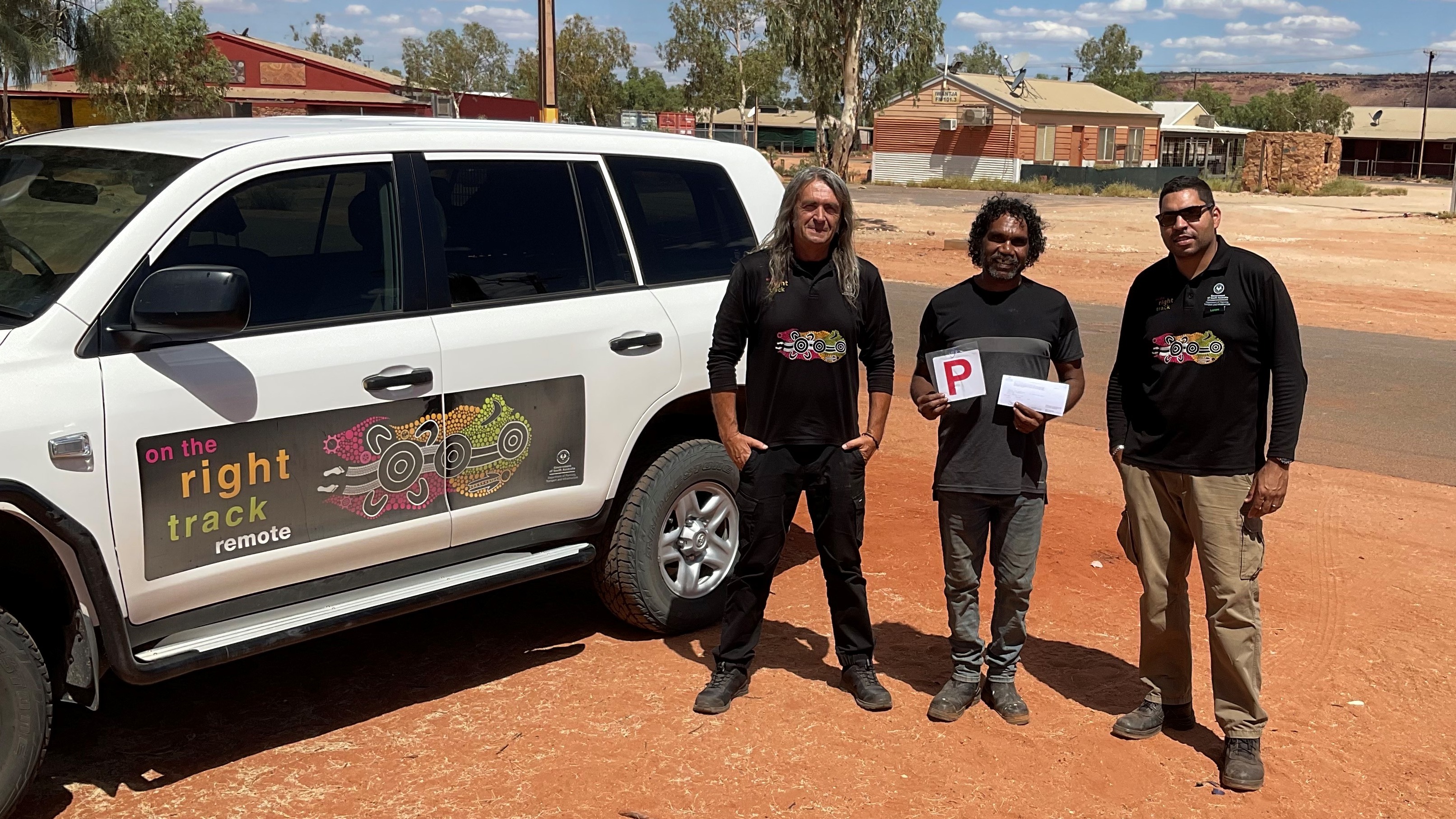
Taking customer service on Country
Margaret Marchant has a greater appreciation of the challenges remote communities face and feels more connected to Aboriginal culture after visiting the APY Lands with On The Right Track this month.
The team travelled through Indulkana, Mimili, Umuwa, Pukatja, Fregon and Coober Pedy from 28 April to 4 May on a trip the Service SA Customer Relations Officer will never forget.
“I went to school in the ‘60s and ‘70s, and we were taught nothing about Aboriginal history,’’ she says.
“It wasn’t until I started working and did my own reading that I looked at white settlement from an Aboriginal point of view.
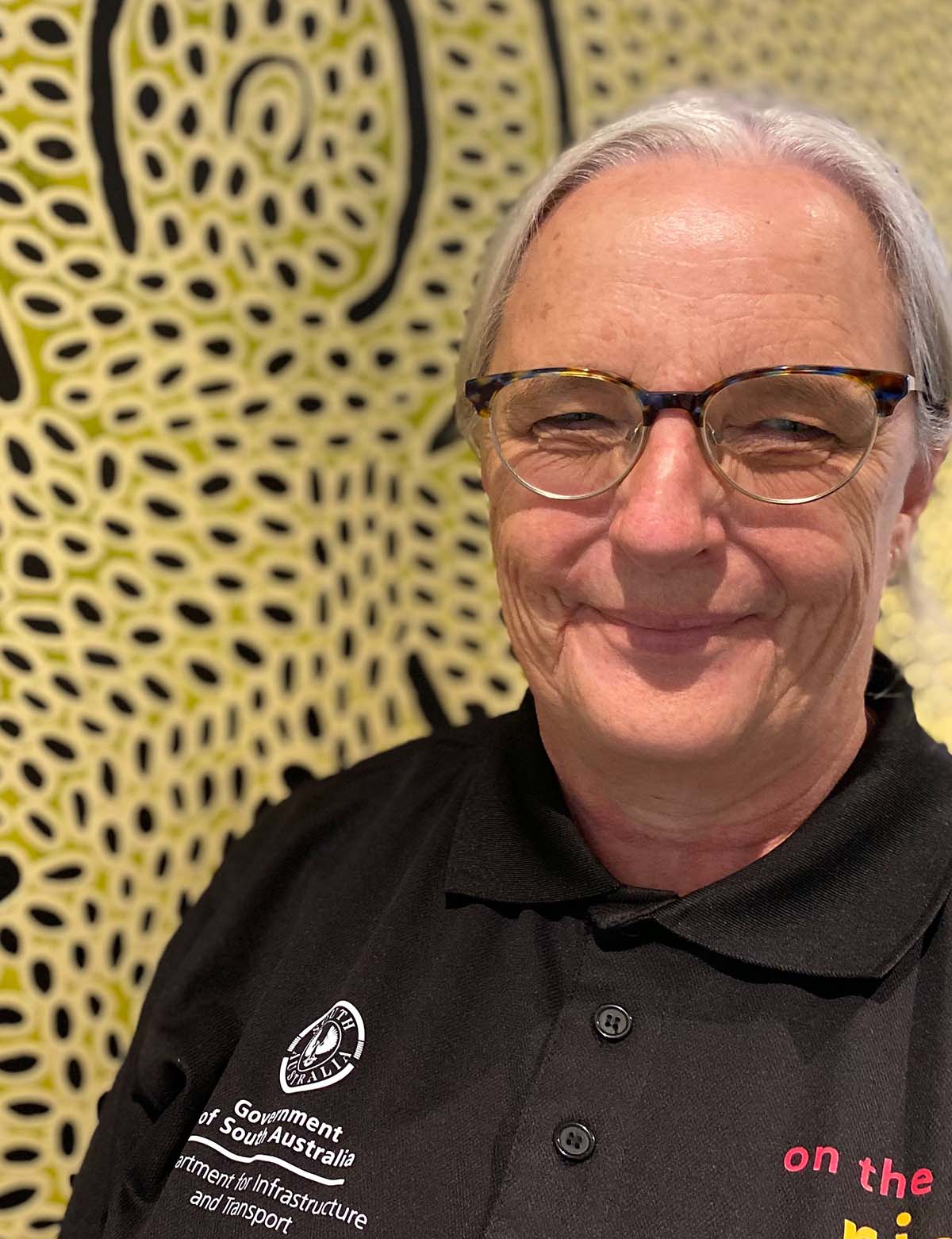 “This trip was amazing, not just because of the landscape but also the learning.
“This trip was amazing, not just because of the landscape but also the learning.
"I gained a deeper appreciation of Aboriginal culture, the importance of Country and how communities live.’’
Thirty Service SA staff have travelled with the program since July last year.
The trips enable staff to explore how Service SA can support On The Right Track to help Aboriginal people overcome common barriers to accessing services, such as not having photo identification.
“Learning to drive, gaining a licence, or being issued with a proof of age card is a beginning, especially for younger Aboriginal people,’’ Margaret says.
“Verifying identity is an important part of this but for some Aboriginal people this process can be complicated as many births have not been recorded.
“One woman we spoke with has the wrong year of birth on her licence, but because many of the Elders who could verify when she was born are no longer alive, her exact year of birth may be difficult to establish.
“I see it as a mutual partnership - working towards improving access to services for Aboriginal people to empower them with choice and opportunity.’’
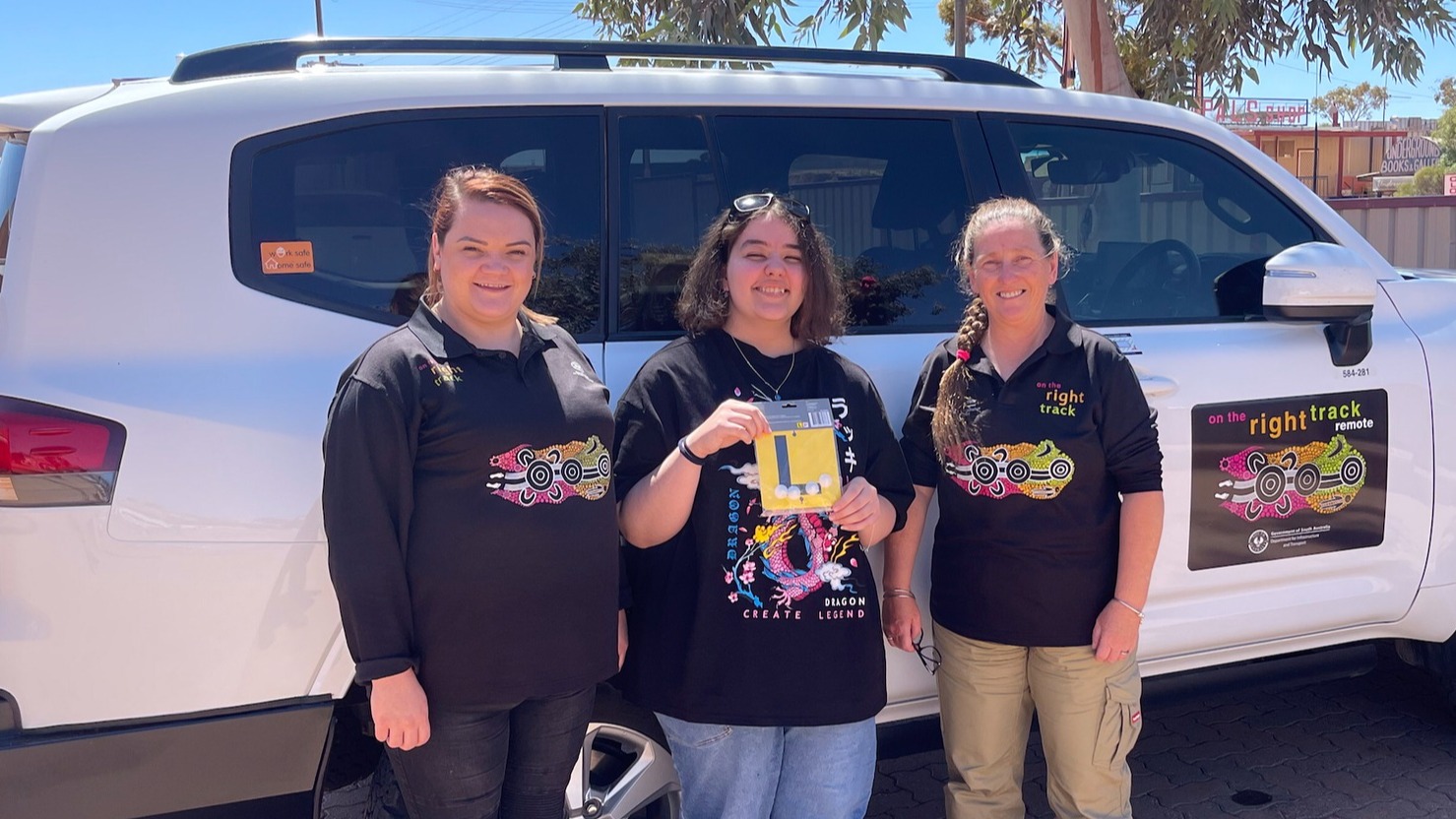
Helping two young women to get their learner’s permits was among many highlights for Margaret.
“One of the women, she was very quiet, shy, and she wouldn’t smile, but she got there in the end.
"To see how proud she was to have achieved something she might not have if On The Right Track had not been there made me proud too.
“I learned a lot about myself out there. It was the furthest north in South Australia I had ever been and I came home with more self-belief.’’
Mount Gambier-based Service Delivery Officer Alannah Green also made the trip, her second with On The Right Track. “It was a powerful reminder of what customer service is all about,’’ she says.
“There were young kids coming in, maybe in their early 20s, who’d been sitting on a learner’s permit for six years because it’s taken them that long to be able to get their driving hours.
“To have an instructor to drive with, and to see them finally pass a test, was huge. It means they can go off and get their first job and start living life, something most young people take for granted.
“The communities are so appreciative that On The Right Track can visit, and the people seemed so much happier knowing that we’ve sorted out their fines, or we’ve helped them register their car or replace the licence they lost.
“It puts a lot of things into perspective.’’
